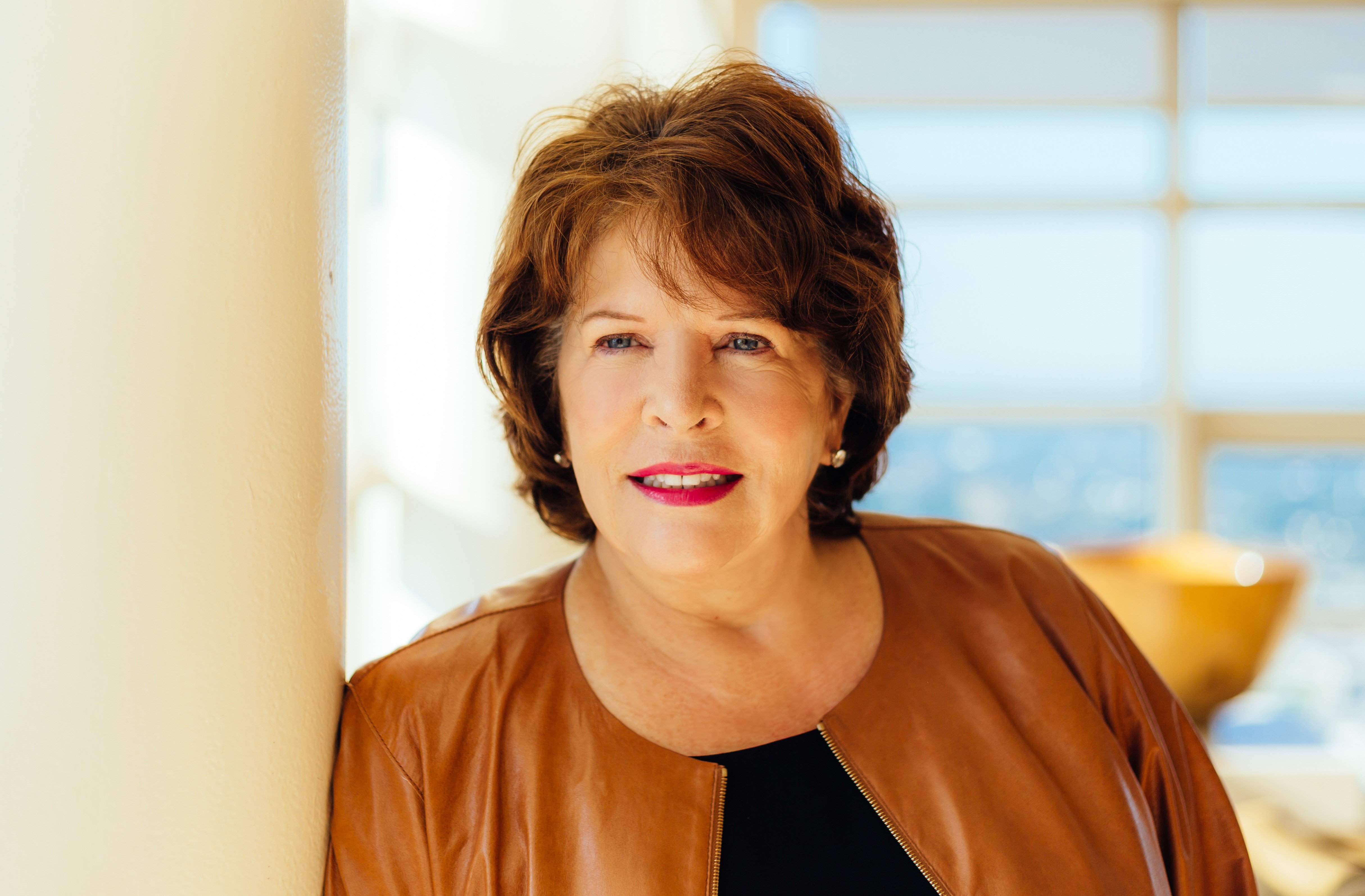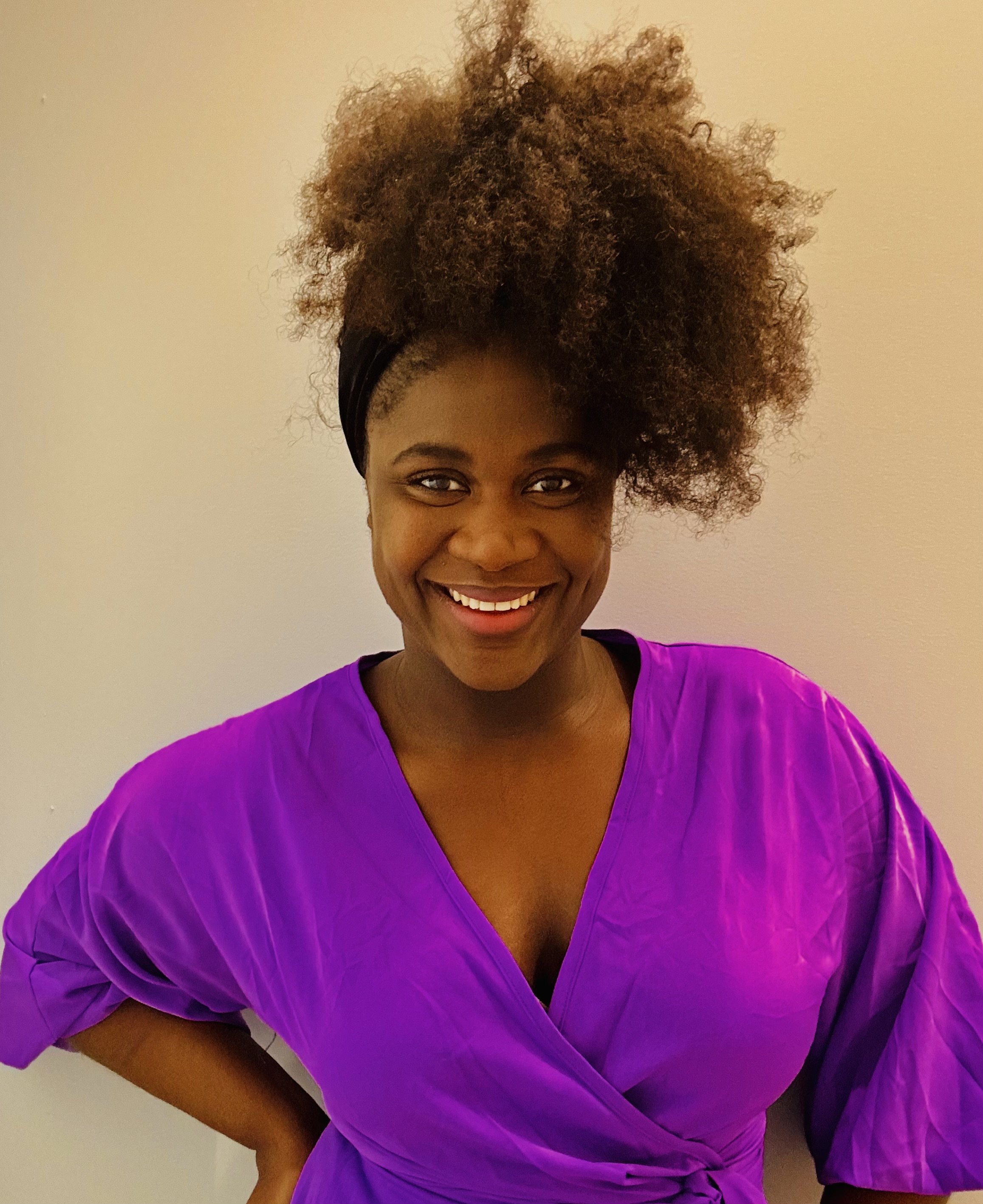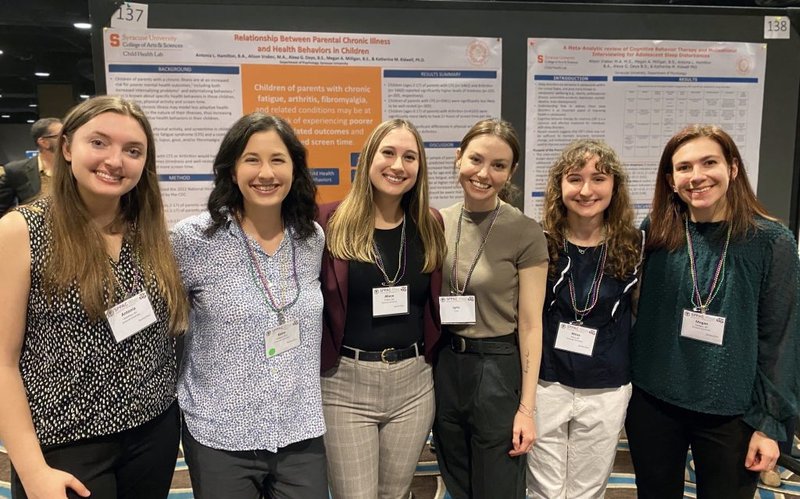Funding Research That Improves Health and Shortens ‘Bench to Bedside’ Time
Walters Endowed Fund for Science Research supports research and discovery that addresses grand challenges facing global and human health.

Doctoral students in clinical psychology Alexa Deyo and Alison Vrabec spent their summer testing a theory that a certain kind of therapeutic technique called motivational interviewing could improve sleep and overall health among adolescents. According to the National Institutes of Health, sleep problems can impact how people learn, think and get along with others. “If teens are sleeping better, their mental health is improved; they are more emotionally regulated and less impulsive,” says Katie Kidwell, Ph.D., assistant professor of psychology, who is supervising the clinical research.
Their research is exactly the kind of promising work that philanthropic alumni Kathy Walters ’73, H’23 and her husband, Stan ’72, had in mind when they set up the Walters Endowed Fund for Science Research in 2016. According to Kathy Walters, they were hoping to create new opportunities for research that would benefit humanity—and they left the door open for the dean and faculty in the College of Arts and Sciences (A&S) to define what those benefits might be.
“Researchers tend to see things that those of us not immersed in science would never see,” says Walters, a Syracuse University Trustee. “I’m not a big believer in telling capable people what they should be researching.” In fact, the funding is to be used to support a vast array of academic inquiry, including “undergraduate, graduate or faculty led research in the sciences, including departments of biology, chemistry, communication sciences and disorders, Earth science, mathematics, psychology and physics.”
The funding is awarded at the discretion of the A&S dean and associate dean for research to recognize outstanding research faculty. “Research funding is critical to supporting our academic mission,” says A&S Dean Behzad Mortazavi. “With Kathy and Stan’s gift, we can invest in more of our stellar faculty and students, so they can contribute their enormous expertise to solving challenges in the areas of the environment and climate, health and wellness, social justice and human thriving.”

Since the fund was established, it has supported research by graduate students in physics, chemistry, biology and psychology. “Thanks to the Walters, I was able to spend the summer of 2023 in the lab full-time,” says Favour Chukwudumebi Ononiwu, who is pursuing her Ph.D. in cell biology and is dedicated to figuring out the cellular behavior that governs early development of human tissue. “This particular tissue helps the body organize itself. Understanding how that happens is key to understanding developmental defects.”
“Bench to bedside research” like this takes years of toil at the “bench” in the lab to reach the “bedside” where people can benefit. Ononiwu says the funding from the Walters allowed her to spend a lot more time at that bench, reduce some of the costs associated with conducting the research and speed up the process of discovery. “It was also empowering to be in a space where I didn’t have to worry about my finances and could come into the lab and focus on the experiment. It also helped get my research to the point where I could apply for more grants and fellowships to accelerate the research.”
Ononiwu, who hopes to pursue a job in a biotechnology, pharmaceutical or biomedical company, says the Walters funding was a “catalyst for my development as a researcher and a professional.”
Kidwell says her graduate students are deepening their own clinical training through the funded research and positioning themselves to be more competitive for National Institutes of Health grants.

Professor Katie Kidwell (second from left) with members of the Child Health Lab, including graduate students (from left) Toni Hamilton, Alison Vrabec, Lyric Tully, Alexa Deyo and Megan Milligan.
“Oftentimes, teaching assistantships take precedence over research assistantships because of financial need,” says Deyo, a first-year doctoral student in clinical psychology.
“Having funding support for the work we are putting our hearts and souls into alleviates a lot of stress.” - Alison Vrabec, third-year doctoral student.
The doctoral students were able to accelerate the launch of their study this past summer, recruit a significant number of teens aged 13 to 17 as study subjects, expose them to the intervention called motivational interviewing and measure the impact on their sleep using a smart watch-type of device called an actigraph.
The intent of their research, of course, is to help teens and college students problem-solve and deal with stressors that impact their well-being. The research aligns with Kathy Walters’ sensitivity to the impact of stress on health. “The world is moving at such a rapid pace that it’s difficult for people to prioritize and focus amidst the change and anxiety,” says Walters. “Helping faculty and students make the most of opportunities to improve health and humanity remains our priority.”
“We are so grateful to Kathy and Stan for their generosity and vision in establishing this fund,” says John Quigley, A&S assistant dean for advancement. “We hope others who are similarly passionate about academic and research excellence at the University will follow suit. An endowment of $100,000 or more provides the kind of annual supplemental support needed by our talented faculty to accelerate the impact of their teaching and research.”
Walters says it’s important to provide gifts that are not too restricted. “Students are developing the critical thinking skills required to pursue knowledge that answers the big questions facing our world. By supporting research, we are helping them find the answers.”
